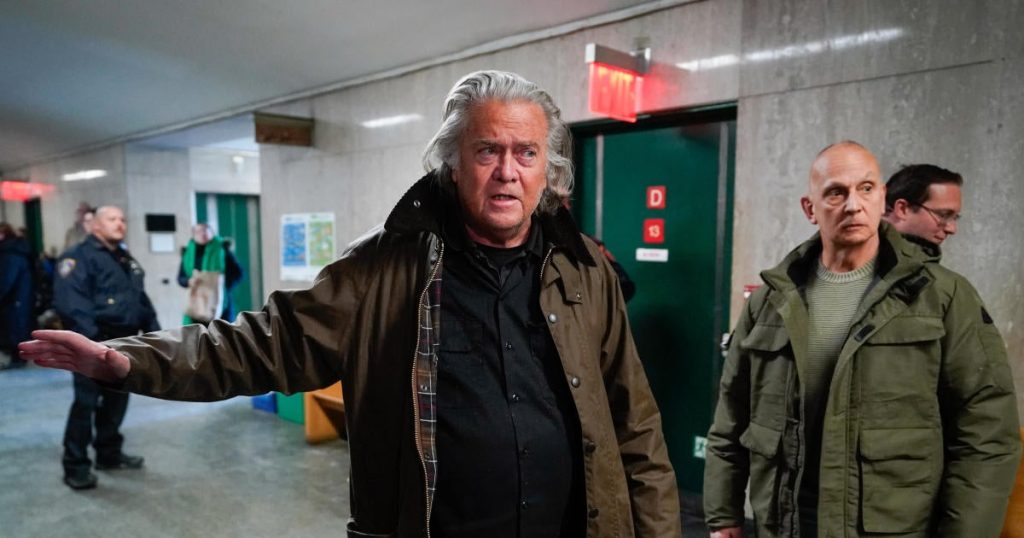Steve Bannon’s Legal Saga: A Guilty Plea and Its Implications
In a recent legal development, Steve Bannon, the former chief strategist to President Donald Trump, pleaded guilty to a state charge stemming from his involvement in a scheme to defraud donors who contributed to a nonprofit aiming to build a wall along the U.S.-Mexico border. This plea marks a significant turn in a case that has garnered substantial attention due to its political undertones and the high-profile individuals involved.
The Plea Deal and Consequences
As part of the plea agreement, Bannon will not face jail time but will be subject to a conditional discharge for three years. This sentence imposes specific restrictions, including a ban on serving as a director of any nonprofit in New York or soliciting charitable contributions within the state. Additionally, Bannon is prohibited from using donor data obtained through the fraudulent scheme. These constraints reflect the legal system’s effort to hold him accountable without imposing incarceration.
Background of the Case and the Nonprofit
The nonprofit at the center of this case, "We Build the Wall," was established with the goal of privately funding a border wall, a project closely associated with Trump’s political agenda. Bannon was accused of involvement in defrauding donors out of $15 million, although his legal team maintains he did not personally profit from the scheme. The case underscores issues of transparency and accountability in political fundraising.
Bannon’s History with the Law
This is not Bannon’s first encounter with legal troubles. Previously, he faced federal charges in a similar case, which was halted when Trump pardoned him in the final days of his presidency. However, the current case falls under state jurisdiction, beyond Trump’s pardon power. Additionally, Bannon served a four-month prison sentence for contempt of Congress related to the January 6 Capitol attack investigation, highlighting his tumultuous relationship with the legal system.
Connection to Trump and Political Context
Bannon’s legal issues are intricately linked to his association with Trump, who has recently resumed his presidential ambitions with vows to enhance border security. The case, prosecuted by Manhattan District Attorney Alvin Bragg, adds another layer to the complexities of political vendetta and justice, particularly as Bragg’s office has also handled cases against Trump himself. This interplay places the case within a broader political narrative, where legal actions are often perceived through a partisan lens.
Broader Implications and Conclusion
The conclusion of Bannon’s case in New York brings closure to a legal battle that began during Trump’s first term. However, it also signals the ongoing challenges of political influencers navigating legal waters, where actions in the public sphere can lead to significant personal and professional repercussions. As the political landscape continues to evolve, cases like Bannon’s serve as reminders of the intricate dance between law, politics, and public perception.












